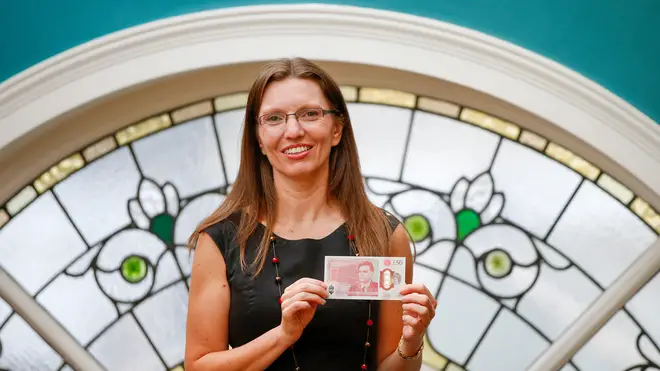
Iain Dale 7pm - 10pm
29 September 2021, 11:04

The Bank of England will withdraw legal tender status of the paper £20 and £50 notes after September 30 2022.
People are being encouraged to spend or bank their paper £20 and £50 banknotes before their legal tender status is withdrawn in a year’s time.
There are approximately £9 billion worth of paper £20 and £15 billion worth of paper £50 notes still in circulation.
As they are returned to the Bank of England, they are being replaced with the £20 notes featuring JMW Turner, and £50 notes featuring Alan Turing. The new banknotes are made from polymer.
The Bank of England will withdraw the legal tender status of the paper £20 and £50 notes after September 30 2022, and it is encouraging anyone who has them at home to spend or deposit them at their bank or Post Office.
After September 30 2022, people with a UK bank account will still be able to deposit the paper notes into their account. Some Post Offices may also accept the notes as payment for goods and services or as a deposit to an account accessed via them.
The paper £20 features Adam Smith and the paper £50 features Matthew Boulton and James Watt.
The Bank of England will continue to exchange all the paper notes.
The Bank of England’s chief cashier, Sarah John, said: “In recent years we have been changing our banknotes from paper to polymer because this makes them more difficult to counterfeit, and means they are more durable.
“The polymer £20 featuring the artist JMW Turner, and the polymer £50 featuring the scientist Alan Turing are now in wide circulation, and we are in the process of withdrawing their paper equivalents.”
The new polymer £20 was first issued on February 20 2020, and the polymer £50 note was first issued on June 23 2021.
The polymer banknotes are harder to counterfeit and resistant to dirt and moisture and so remain in better condition for longer, the Bank said. The notes also have tactile features, helping blind and partially sighted people to use them.